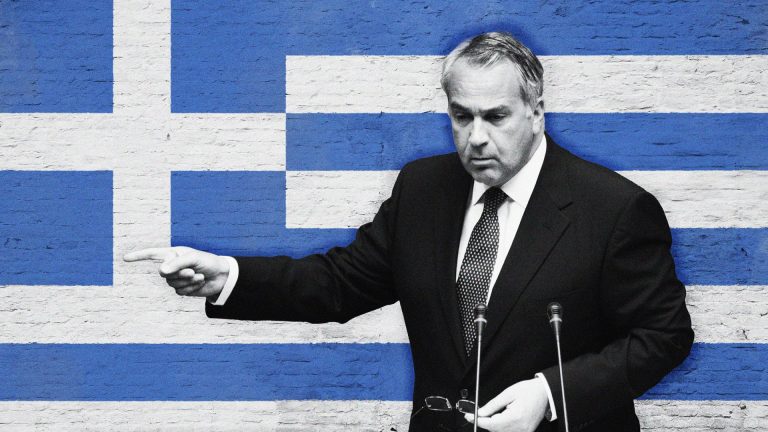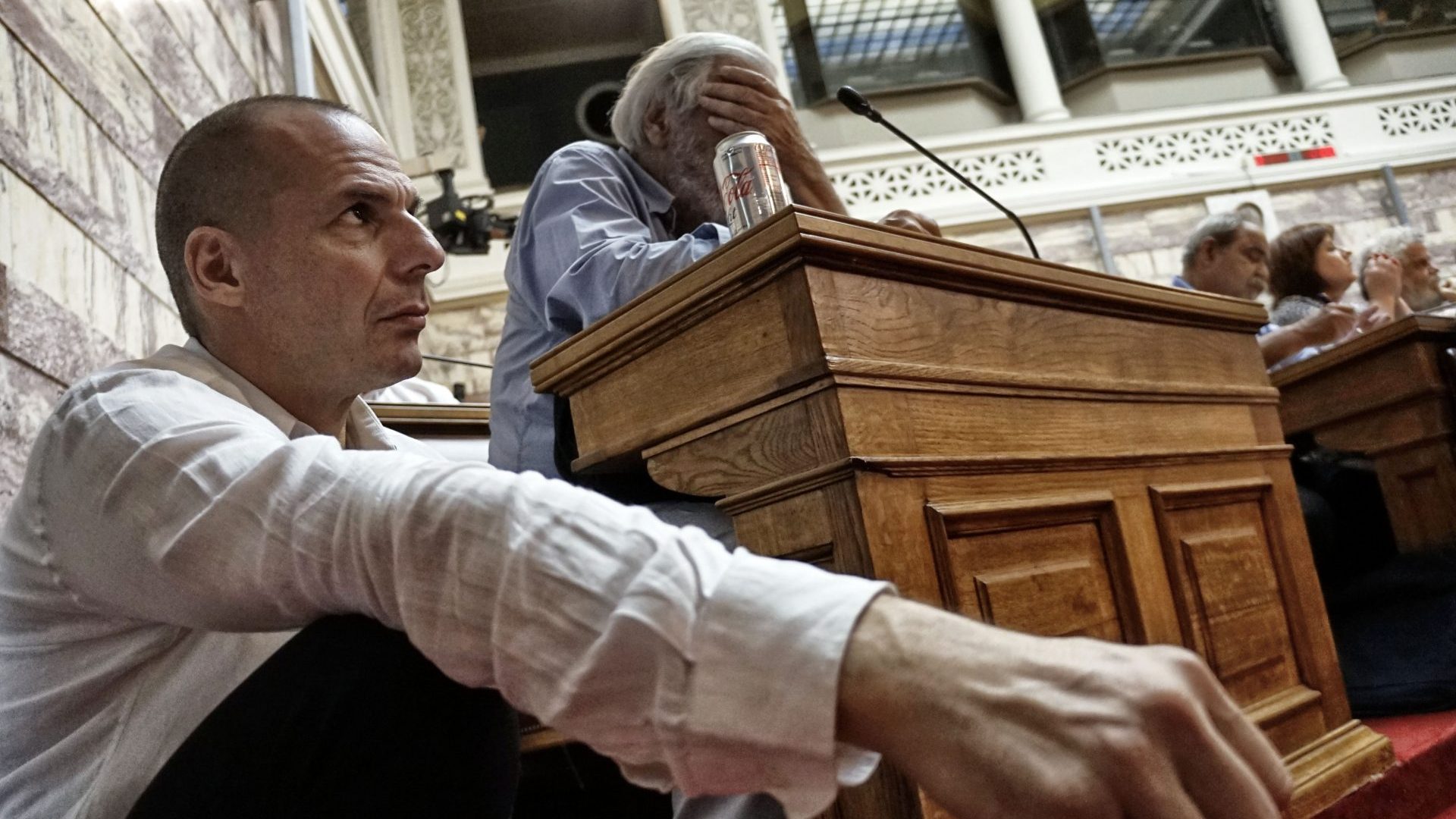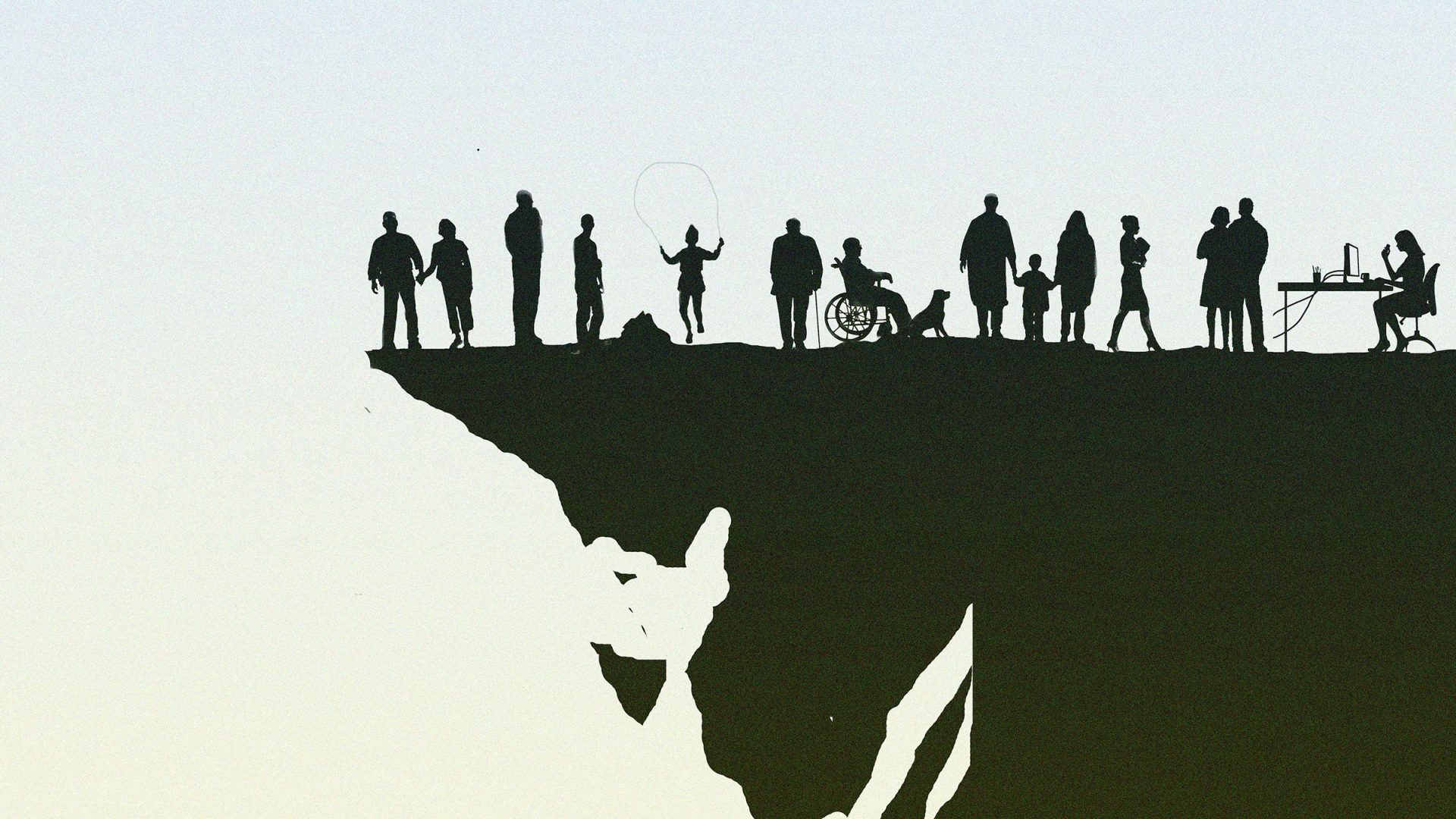I was sitting with a perfectly normal Greek family: mum, grandma, grandpa and their young adult daughter, in a small apartment near the sea. We drank beer, made small talk, sweltered in the summer night. Suddenly, in mid-sentence, the grandmother burst into tears.
“In the war, the Germans attacked our village,” she sobbed. “Now they want to take my pension and destroy my country?” It was late June 2015, at the height of the Greek crisis, whose 10-year anniversary begins this week.
I reported on the crisis close-up. Now, as then, I believe it was one of the most disgraceful attacks on democracy in the history of the European Union, and left scars on politics right across Europe.
The short version of the backstory is: after it joined the euro in 2001, the corrupt Greek political duopoly connived to distort the country’s deficit numbers. They allowed the elite systematically to evade taxes, and – when the truth was discovered – faced a debt crisis that left creditors, including European banks, facing losses of up to €323bn.
Between 2010 and 2014 the Troika – the International Monetary Fund, European Central Bank and European Commission – stepped in to impose three bailout packages, putting themselves on the hook instead of the banks, and imposing 11 rounds of austerity. The Greek economy entered a death spiral, with debt-to-GDP levels soaring as GDP fell by 25%. The suicide rate soared, as did support for the outright neo-Nazi party Golden Dawn. Unemployment reached 19%.
In January 2015, after all variants of centrist politics and technocratic government had been tried, and after five years of social unrest, Greeks voted massively for the left wing party Syriza, which formed a government with a small right wing populist party. Together, prime minister Alexis Tsipras and finance minister Yanis Varoufakis spent six months trying to renegotiate the terms of the third aid package, as per their mandate, but by the end of June time was running out.
I was producing a documentary about the impact of the crisis on ordinary Greeks. Normally that meant hiring local camera crews, but on a fateful Sunday afternoon, I was called into the Maximou – the Greek equivalent of 10 Downing Street – and told “bring your camera”.
I was allowed to film the start of a critical cabinet meeting. The doors shut. I kicked my heels in the corridor for a couple of hours and then Yanis Varoufakis, the finance minister, emerged.
In the quietest voice I have ever heard him use, he told me – my assurance that the footage would air months later: “we’ve rejected further negotiations, so on Tuesday the banks are gonna close”.
They called a referendum to back their decision to defy the Troika – and to their astonishment received a 61% majority, despite every TV channel in the country running 24/7 scare stories, and queues forming at ATMs.
Local Syriza branches – it was a mass party at this point, full of ordinary young Greeks – proudly showed me the DIY pharmacies they’d prepared, to dispense medicines once the official ones ran out of money. I remember asking: but who is going to police the queue?
Luckily we never had chance to find out. Varoufakis resigned, Alexis Tsipras, the prime minister, went to Brussels to negotiate, and a triumphant set of eurozone politicians took selfies to celebrate the Greek surrender.
I believe Syriza were right to try to use the force of a mass, democratic movement to get the EU to renegotiate the deal. Austerity was destroying the economy and driving the growth not just of fascism but of what we called “anomie”. Athens was full of ungovernable spaces where anarchists and fascist clashed. Large numbers of young people began their day with the “black breakfast” of a roll-up and a coffee, because there was little prospect of consuming anything else.
Suggested Reading

The new Greek minister’s war on refugees
But it was also right to de-escalate. The alternative would have been civil war. The far right was ready for it. The communist-influenced far left had long fantasised about a revenge match for their original surrender to the allies in 1945. Exit from the eurozone would have been a disaster for Greece and Europe and – from my close observation of Tsipras while shooting the documentary – I am convinced he always wanted to avoid it.
Today it seems like a crisis from another era. It was the high point of neoliberal hubris, when European governments seriously believed their arbitrary fiscal rules should override the livelihoods of ordinary people.
That hubris quickly collapsed. Brexit and the first Donald Trump victory showed European leaders what the cost of free-market orthodoxy would be if they stuck to it. Today our main problem is the rising ethno-nationalist right, the threat of Russian aggression and the collapse of the rules-based global order.
That Greece has recovered is thanks, in part, to the deals Tsipras did after he once again won an election in September 2015, though voters deserted him in the aftermath, as the party itself fell into acrimony.
It is barely remembered now but, during that summer, up to a million Syrian refugees passed through crisis-torn Greece. Seeing them arrive in their hundreds into the port of Piraeus, with the dockers on strike and ordinary Greeks forced to use the same Red Cross clinics designed for refugees, I feared the worst. But the government – if not all Greeks – acted humanely in the face of this new crisis.
The eurozone, having made its point, has since relaxed its fiscal rules. But the psychological trauma of that summer will stay with everybody who lived through it. My overriding memory is of perfectly rational and stable people suddenly bursting into tears: out of money, out of options, out of hope.
The unstoppable force of the people’s will had run into the immovable obstacle of the bond market. The bond market won.
Only fools make pledges that ignore that power and, sadly, in the shape of the Reform party, we are now saddled with them.
If anyone in Britain fancies a rerun of the Greek crisis, but with added racism and less cheerful weather conditions, they know how to start one.
Paul Mason’s four-part documentary #ThisIsACoup can be watched at the Field of Vision channel on YouTube




